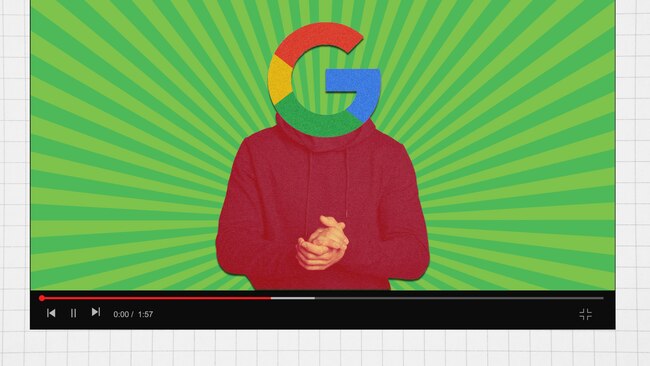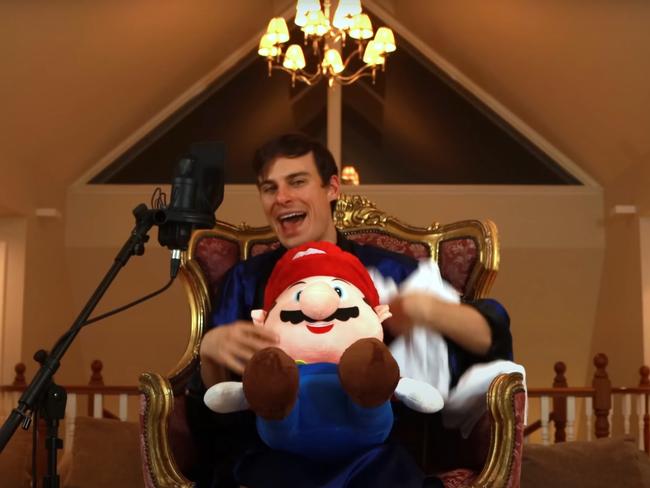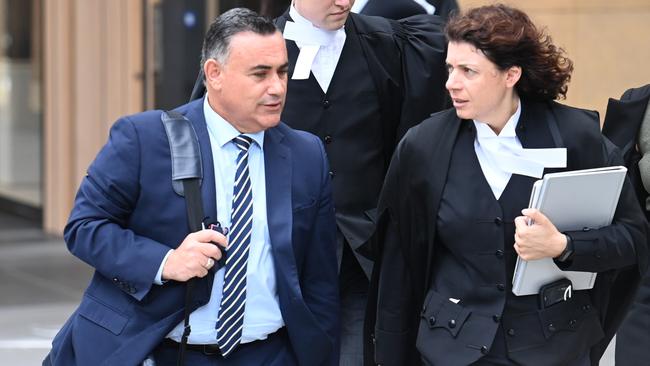Google forced pay up in the FriendlyJordies lawsuit
The YouTuber doubled-down during the hearings while the platform just braced for a bill.

The YouTuber doubled-down during the hearings while the platform just braced for a bill.
Google will have to pay the former NSW deputy premier John Barilaro about $715,000 in defamation damages, but the pain for the search engine giant doesn't end there.
The tech platform has been slapped with a fine, which is a drop in the ocean for the company that recorded revenue of more than $358bn in 2021. Google has been warned it may face contempt of court charges after it was embroiled in a lawsuit between Barilaro and YouTuber FriendlyJordies, whose real name is Jordan Shanks.
Sorry, what?
Barilaro sued Google - the operators of YouTube - in the Federal Court over its failure to remove a selection of sketch videos titled "bruz" and "Secret Dictatorship" which were made by Shanks and published on his YouTube channel throughout September and October back in 2020.
The former Monaro MP, who has since retired from politics, said the videos were defamatory because they insinuated he was a "corrupt conman" who took bribes, engaged in blackmail, and misused public funds, including allocated $3.3m to a beef company. Barilaro argued the videos were "vulgar", "offensive" and included "racial slurs" referencing his Italian heritage.
The court found Shanks repetitively called Barilaro "meatball", "greasy", "greasy little scrotum", "wog", "corrupt" and "Italian" as well as making "direct references or clear allusions to the mafia".

On Monday, Justice Steven Rares said the videos of Shanks, better known as FriendlyJordies, constituted a "relentless and vicious campaign against Mr Barilaro".

Barilaro settled his case against Shanks late year. The YouTuber provided an apology and edited his videos.
"Mr Barilaro, like most members of the community, believed that Google portrayed itself as a good corporate citizen, but it did nothing to stop the conduct on its YouTube platforms," Justice Rares continued in his judgment.
Top media lawyer Justin Quill said this wasn't a surprise verdict.
"This, really, was about just how much are they going to pay, not whether they were gonna have to pay," Quill told The Australian's podcast, The Front.
"This case really ended up being only an assessment of damages. Because Google dropped the defences that they were intending to, or trying to, run."
Justice Rares continued: “The ability of social media entities to publish and enable the communication of such material without constraint is a matter that the parliament ought to consider addressing.”
“Mr Barilaro was traumatised by Google’s and Mr Shanks’ campaign, and it caused him to leave public office prematurely."
How Google got caught up in this
As Justice Rares' judgement concluded: "Google did not apply its own policies, because it did nothing to prevent Mr Shanks‘ hate speech, and harassment [at] Mr Barilaro."
Big tech companies, like social media outlets and Google, have long argued they are not "publishers", this case is now a canary down the coal mine. Quill said they usually rely on the innocent dissemination defence.
"They are a publisher from day one. So as soon anyone puts up something on YouTube, and Google was the owner of YouTube, they are a publisher from day one, but they have a defence. They have a defence called innocent dissemination. And that defence exists because they can't be expected, and law, doesn't require them to know everything that has been put up on every on its platform at any point during the day," Quill said.
What differs in this instance is that Barilaro actually made Google aware of what was going on. With his lawyers outlining to Google in an official letter the reasons why the videos should be taken down and alerting the company of the issues to come should it ignore the requests. That letter basically put on the record that Google, as the owner of YouTube, was a publisher and could no longer rely on the innocent dissemination rule.
"At that point there was a fork in the road, a crossroad, for YouTube or for Google, as the owner of YouTube, to either decide to keep it up without the innocent dissemination defence, and they can defend it on other bases, like that 'it's not defamatory', 'it's true' or 'it's an opinion', just in the same way as any other publisher - like a newspaper would - or they can take it down and stop being a publisher," Quill said.
What's the difference between this and the Dylan Voller case?
A lot, but also not that much, according to Quill.
Dylan Voller - a former inmate at Don Dale - successfully sued a number of news organisations over defamatory comments that were published on Facebook posts of news articles.
"When an article is published on a news website, and comments are enabled at the bottom of those articles, and someone writes a comment on it - we've always accepted that [the media is] liable in that situation. But the Voller decision is a step further away because those comments were written on Facebook. It's hard to try and explain or justify the Voller decision, because frankly, I just, think it is wrong, I think is wrong at law. But I think it is wrong in principle."
He said "It could get worse for Google before it gets better" as there is also now a looming contempt charge as during the initial hearings, Shanks continued publishing videos about Barilaro on its platform.
This is an evolving judicial beast, so watch this space.



